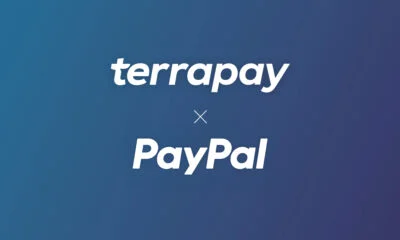News
Young Arabs Are Embracing The Fintech Revolution
Working hard and aiming for high-paying jobs no longer leads to financial security, let alone the ability to retire early.

Between government-sponsored pensions and cultural norms, older generations of Arabs living in the MENA region were never too concerned with how to invest and save money.
For them, simply working hard was enough to enjoy the financial stability necessary to focus on creating families and living well-rounded, fulfilling lives. Young Arabs on the other hand, appear to be living in a completely different world. One that is in many ways far more difficult than the world their parents grew up in.
Working hard and aiming for high-paying jobs no longer leads to financial security, let alone the ability to retire early.
“It’s not just about retiring; it’s about living better, having dreams, having time to breathe and reflect,” said Mayar Akrameh, 29-year-old management consultant, in an interview for AFP. “We’re taught that if you’re working and making enough money, even if you hate your job, you’re good. Or they think we’re good”.
To improve their financial outlook, increasingly many young Arabs are turning to various UAE-based finance platforms that educate users and simplify investing, making the daunting process more accessible.
The pandemic has accelerated the growth of the fintech industry in the MENA region even more. It’s estimated that 465 fintech firms in the UAE alone will generate about $2 billion in investment capital by 2022, up from $80 million raised in 2017.
Also Read: Dubai Establishes $272 Million Future District Fund To Attract Tech Companies
These new financial players fill the massive gap in the region’s investment landscape, which still focuses largely on high-net-worth individuals. “If someone wanted to invest $1,000 or $10,000, there was not much available” said Haitham Juma, an investment solutions manager at the UAE-based National Bank of Fujairah.
Hopefully, the blossoming fintech industry will give young Arabs the options they need to secure the stable and prosperous financial future they dream of.
News
Google Releases Veo 2 AI Video Tool To MENA Users
The state-of-the-art video generation model is now available in Gemini, offering realistic AI-generated videos with better physics, motion, and detail.

Starting today, users of Gemini Advanced in the MENA region — and globally — can tap into Veo 2, Google’s next-generation video model.
Originally unveiled in 2024, Veo 2 has now been fully integrated into Gemini, supporting multiple languages including Arabic and English. The rollout now brings Google’s most advanced video AI directly into the hands of everyday users.
Veo 2 builds on the foundations of its predecessor with a more sophisticated understanding of the physical world. It’s designed to produce high-fidelity video content with cinematic detail, realistic motion, and greater visual consistency across a wide range of subjects and styles. Whether recreating natural landscapes, human interactions, or stylized environments, the model is capable of interpreting and translating written prompts into eight-second 720p videos that feel almost handcrafted.
Users can generate content directly through the Gemini platform — either via the web or mobile apps. The experience is pretty straightforward: users enter a text-based prompt, and Veo 2 returns a video in 16:9 landscape format, delivered as an MP4 file. These aren’t just generic clips — they can reflect creative, abstract, or highly specific scenarios, making the tool especially useful for content creators, marketers, or anyone experimenting with visual storytelling.
Also Read: Getting Started With Google Gemini: A Beginner’s Guide
To ensure transparency, each video is embedded with SynthID — a digital watermark developed by Google’s DeepMind. The watermark is invisible to the human eye but persists across editing, compression, and sharing. It identifies the video as AI-generated, addressing concerns around misinformation and media authenticity.
While Veo 2 is still in its early phases of public rollout, the technology is part of a broader push by Google to democratize advanced AI tools. With text-to-image, code generation, and now video creation integrated into Gemini, Google is positioning the platform as a full-spectrum creative assistant.
Access to Veo 2 starts today and will continue expanding in the coming weeks. Interested users can try it out at gemini.google.com or through the Gemini app on Android and iOS.





















